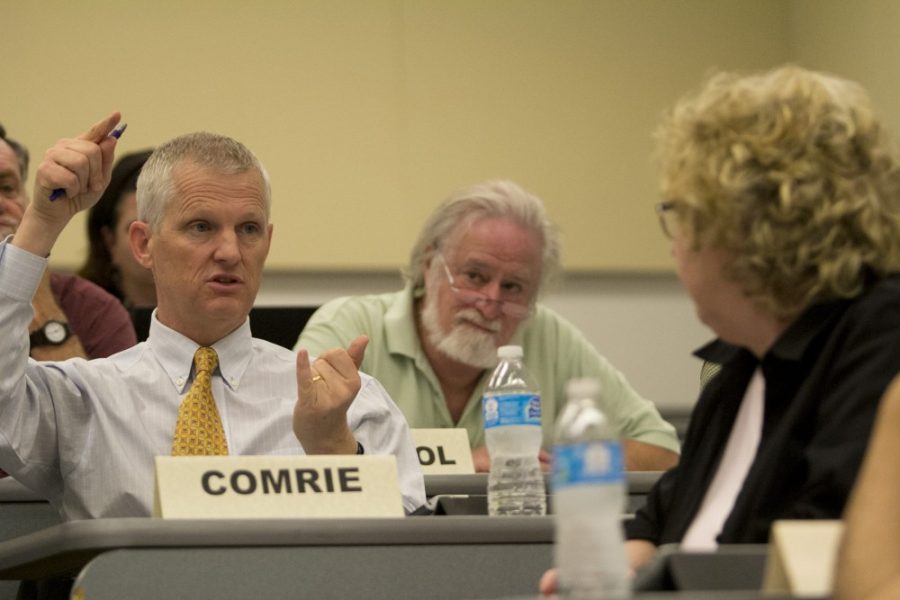The Faculty Senate tackled the suspension of ASA’s fee and the president’s strategic plan for the university in its monthly meeting Monday evening.
The senate addressed issues as it was presented in various reports by Associate Students of the University of Arizona President Katy Murray. The student fee that provides the majority of funding for the Arizona Students’ Association was suspended following a meeting with the Arizona Board of Regents last week.
Murray’s mention of the suspension sparked a discussion by the senate regarding the initial cause for suspending the fee, as well as talk about the future of the organization. Wanda Howell, chair of faculty, directed her question to Murray, asking what caused the regents to suspend the fee in the first place.
Both Murray and Graduate and Professional Student Council President Zachary Brooks agreed that the association’s initial funding of Proposition 204 was responsible for the fee’s suspension, but also cited other factors.
“I think there is kind of a myriad of reasons,” Murray said. “I think that part of it was a lack of communication between all three of the universities this year.”
Murray added that the next step for the issue would be to discuss with the regents what exactly the underlying issues are, and to try to overcome them in an effort to restore funding to the association. The possibility of negotiating with the regents, she said, would also help keep the association intact, and that she didn’t anticipate that ASA would become completely defunct.
The association’s fate, Murray added, is currently in the hands of the regents, and they will discuss the fee at their meeting in February.
The senate also addressed the next regents’ meeting at the end of the week, specifically President Ann Weaver Hart’s goals in regards to the meeting’s outcome.
Andrew Comrie, interim provost and senior vice president of academic affairs, said Hart intends to make a strong argument for the regents’ support of her strategic plan, which Comrie has been presenting to the community in a series of town hall meetings.
“I’m sure she would love ABOR to basically endorse the plan as far its development,” Comrie said. “The outcome is really to get successful from them, that this is a good direction, that the plan is very good and believable.”
Comrie and J.C. Mutchler, chair of the Strategic Planning and Budget Advisory Committee, followed the discussion with a presentation of the plan, which focuses heavily on student-centered innovation and a transparent funding model. Comrie added that university administrators were thorough in the plan’s drafting in order to see that it met the board’s standards.
“This is an important marker along the way in that, historically, we would not, as a university, appear as well as we might have in some of these presentations because they haven’t been exactly what board has either asked for or what we’ve anticipated they wanted to hear,” Comrie said.
“We’ve done a lot of legwork this time to try to make sure that we adjust their concerns directly.”
Hart will present the plan to the regents during their meeting on Thursday and Friday in the Grand Ballroom of the Student Union Memorial Center.








